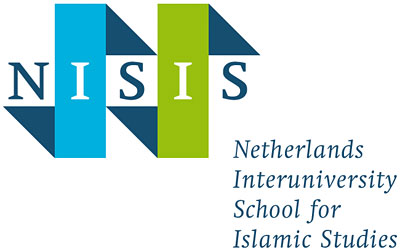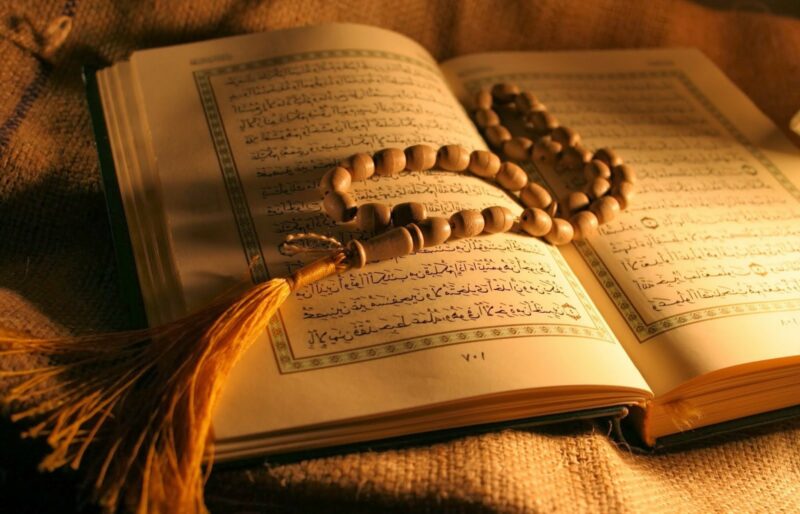News
A look back at the NISIS Autumn School 2023: ‘The Qur’an and Its Interpretive Communities’
A look back at the NISIS Autumn School 2023: ‘The Qur’an and Its Interpretive Communities’
This year, the NISIS Autumn School, themed “The Qur’an and Its Interpretive Communities”, was organized at the Vrije Universiteit (VU) in Amsterdam on 23-26 October. The theme of the event was, on the one hand, intended to engage with research about scholarly Qur’anic exegesis and hermeneutics conducted at the VU, while it also consciously sought to connect this with how different lay Muslim communities interpret the Qur’an, on the other. The speakers, as such, represented a wide variety of approaches to the study of the Qur’an, providing participants with a broad and multidisciplinary event.
On Monday 23 October, the Autumn School was opened by Professor Gregor Halff, the dean of the Faculty of Social Sciences at the VU, and introduced by dr. Joas Wagemakers, the academic director of NISIS, followed by the first keynote speaker, dr. Yusuf Çelik (VU). The latter spoke on “From Producing Interpretations to Reflecting on the Matter of Interpretation Itself: The State of Qur’anic Hermeneutics in Turkey”, which dealt with three specific Turkish scholars working on the hermeneutics of the Qur’an. He showed that these scholars differ from one another in their approaches to Scripture, which are sometimes so controversial that they have had to retreat from some of their own conclusions. This was followed by the first group of participants, which included Murat Kayalık, who spoke about the ninth-century Sufi scholar Sahl al-Tustari and his interpretation of parts of the Qur’an, and Maria Wozniak, whose presentation dealt with Polish translations of the Qur’an from the sixteenth to the twenty-first century.
The second session was kicked off by Professor Johanna Pink (University of Freiburg) with a presentation on “Exegetical Genealogies: Qur’an Translation and the Faces of Muslims Scholarship in the Twentieth and Twenty-First Centuries”, which focussed on the role of Muslim scholarship and to what extent the authors of works on the Qur’an can be seen as scholars as well as the fine line between translation and exegesis of the Qur’an. The PhD-candidates participating in this session were, in order of appearance, Elvira Kulieva, whose presentation dealt with the Qur’anic mission of the Ahmadiyya in Russia through its Russian translation of the Qur’an, Majid Rashidian, who presented Qur’anic interpretations in Iran and in Persian, and Necmettin Salih Ekiz, discussing the reception of Ignaz Goldziher’s Die Richtungen der islamischen Koranauslegung among Turkish exegetes.
The second day of the Autumn School – 24 October – started with a keynote lecture by dr. Marijn van Putten (Leiden University) on “The Origins of the Qur’an in Light of a Primary Source Revolution”, in which he first presented the traditional Islamic narrative on the development of the Qur’an, followed by academic approaches to the same question. The latter include his own and his conclusion traces the origins of the Islamic holy book quite close to that of the traditional narrative. The PhD-candidates following this lecture were Azhari Andi, who spoke on the story of the sacrifice of Abraham’s son in early Qur’an commentaries, Shahin Meysami Azad, whose presentation dealt with mathematical approaches to the Qur’an, and Mohammad Alamolhoda, who presented his findings on the most prominent theories about the Jewish or Christian origins of the Qur’an.
While the first half of the Autumn School focussed largely on scholarly discussions on the Qur’an and its exegesis – leading to interesting and lively discussions among those present – the second half of the event, starting on Wednesday 25 October, concentrated on how “ordinary” Muslim communities have dealt with the Qur’an. The first keynote lecture within this subtopic was “Laypersons as Exegetes? Possibilities and Limits of the Interpretative Engagements of ‘Ordinary’ Muslims with the Qur’an”, presented by dr. Fatima Çaviş. She showed examples of lay Muslims engaging with controversial passages from the Qur’an about gender relations and how they fit within a larger of context, both exegetically and in today’s society. This was followed by Mohammad Mahdi Fallah’s presentation on Shabestari’s phenomenological interpretation of the Qur’an from a non-dualistic perspective. Although these two presentations were quite different in nature, we were still able to connect the intellectual and philosophical approach of the latter with the focus on interpretive communities of the former by focussing on Shabestari’s views on human rights.
During the afternoon, dr. Carmen Becker (Leibniz Universität Hannover) concentrated on Salafi online practices and how “the religious” was expressed in her paper “‘Digital Religion’ and Muslim Interpretive Communities: A Social Theory Practice”. She discussed in what ways such practices could constitute online interpretive communities and how these can be analysed through social theory. Her talk was followed by Egi Tanadi Taufik, who spoke on the Ahmadiyya community in Indonesia and its use of Mary in their Qur’anic exegesis. This was followed by Irene Vincente López de Arenosa, whose presentation focussed on the role of talbes (Muslim students of Arabic and the Qur’an) in the teaching of Qur’anic sciences in seventeenth-century Morocco, concentrating on the case study of Abdalá Oropesa and Fray Pedro de Alcántara. Finally, Seyed Pedram Rasouli presented his work on Moses’ Qur’anic narrative as an interpretation of specific verses.
The final day of the Autumn School focussed on teaching and monitoring the Qur’an and its interpretive communities. Dr. Welmoet Boender (VU) started this topic with her presentation “Understanding Islamic University Theologians at Western European Universities as an ‘Interpretive Community’: Possibilities and Limits”. She delved into how Qur’anic interpretation is at the core of contextual, critical-reflective theology at Islamic university programmes in Germany, the Netherlands, Great Britain and Austria. Boender showed that this theology reflects on how Muslims can deal with both interconfessional and intrareligious plurality. This was followed by Setareh Hongxin Zheng’s presentation on another Muslim community in Europe, namely Shiite in Brussels, and how rituals and memories influence their Qur’anic translations and teachings. Finally in this session, Yulianingsih Riswan continued the focus on Muslims in Europe through her presentation on intergenerational engagement with the Qur’an and how teaching this book has been transformed among Indonesian Muslims in the Netherlands.
Continuing the theme of the Qur’an among Muslims in Europe, Luis Manuel Hernández Aguilar (Europa-Universität Viadrina Frankfurt (Oder)) presented “Reading the Qur’an in Racial Times”. In his presentation, he conveyed the message that thinking about the Qur’an today necessitates that we understand the Islamophobia and racism towards Muslims in societies today. His presentation was followed by that of Saadatul Jannah, who discussed the influence of eschatological interpretation on the work the Mu‘tazili exegete al-Zamakhshari. Following this, Annas Rolli Muchlisin presented his work on the enduring importance of Tafsir al-Jalalayn and its Hashiya al-Sawi in Indonesian Islamic intellectual history.
Throughout the Autumn School, a wide variety of speakers was given the chance to present their work, which was often followed by lively – and interdisciplinary – discussions. New contacts were made and new insights were gained. Perhaps most important, however, was the interplay between a very diverse set of academics. One of the goals of this event was to seek scholarly interaction between scholars of the Qur’an and of Qur’anic exegesis, on the one hand, and academics working on various interpretive communities on the other, as the title of this Autumn School suggests. Both the keynote speakers and the participants engaged in this and ensured that we realised this goal, thereby also showing that the way Muslims deal with the Qur’an continues to be not only a fascinating, but also a highly dynamic process.



